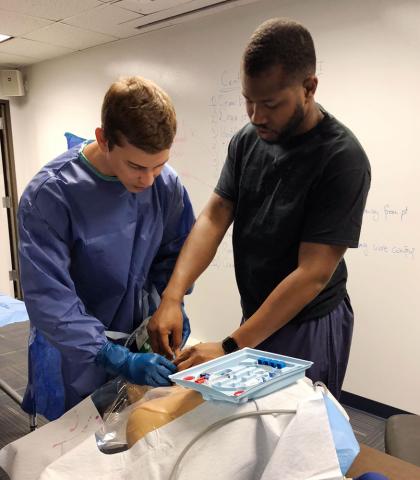Over the course of the Master of Science in Anesthesia Program, students will earn three certifications: Basic Life Support (BLS), Advanced Cardiovascular Life Support (ACLS), and Pediatric Advanced Life Support (PALS). These certifications are required for employment as a certified anesthesiologist assistant.
The certifications are completed through the clinical experience series, and awarded through the American Heart Association, which is the authority in resuscitation science, research, and training.
Basic Life Support
The Basic Life Support training ensures students can recognize life-threatening emergencies and respond appropriately. Students are certified to perform chest compressions, deliver ventilation, and to use defibrillators (AEDs).
Students in the CWRU MSA Program earn their BSL certification in the summer semester of the first year.
Advanced Cardiovascular Life Support
The Advanced Cardiovascular Life Support training builds on the foundation of lifesaving BLS skills with an emphasis on continuous CPR, team dynamics and communication, and systems of care. Students learn how to recognize cardiopulmonary arrest, immediate post-cardiac arrest, acute dysrhythmia, stroke, and acute coronary syndromes (ACS), and learn proper intervention techniques.
Students in the CWRU MSA Program earn their ACLS certification in the fall semester of the first year.
Pediatric Advanced Life Support
The Pediatric Advanced Life Support training explores important concepts of pediatric assessment. Students learn to apply basic life support techniques to pediatric patients, with specific attention to seriously ill or injured children. Using PALS treatment algorithms and team dynamics, students learn how to improve outcomes for children.
Students in the CWRU MSA Program earn their PALS certification in the spring semester of the first year.


